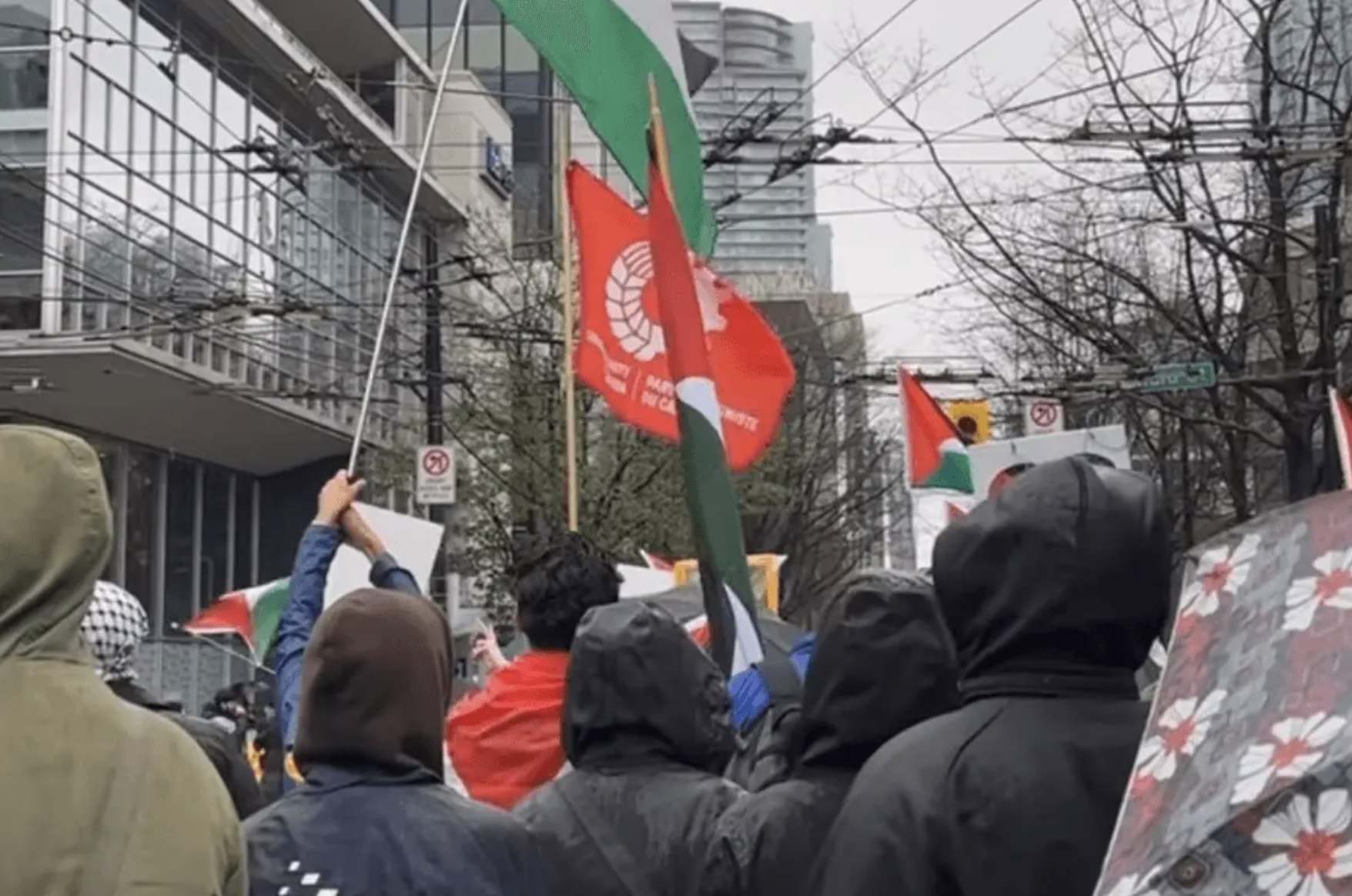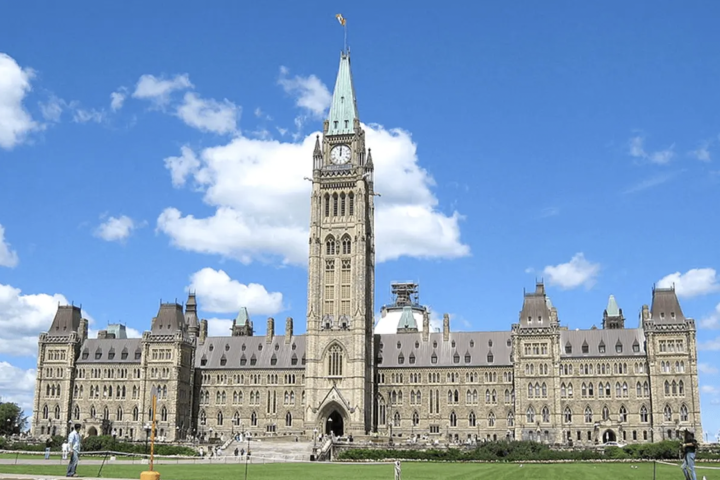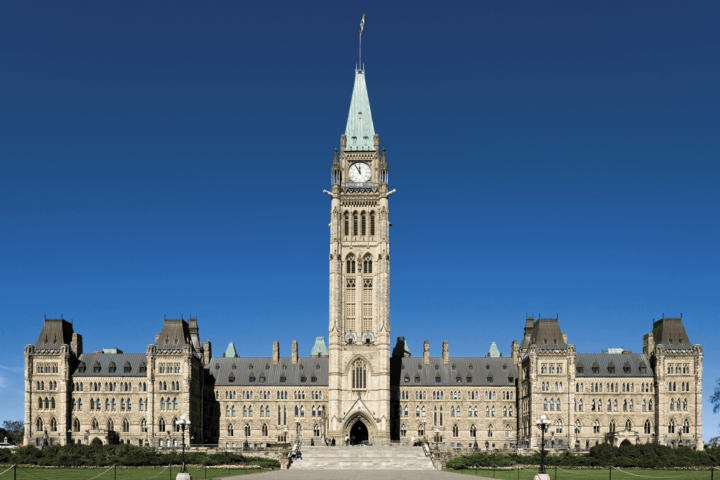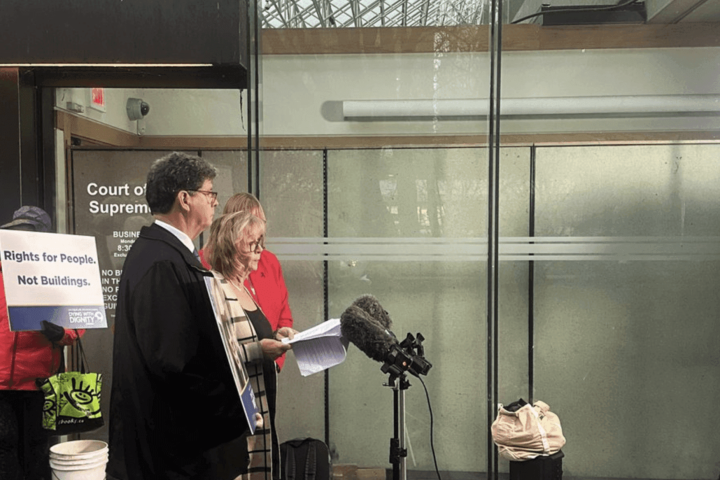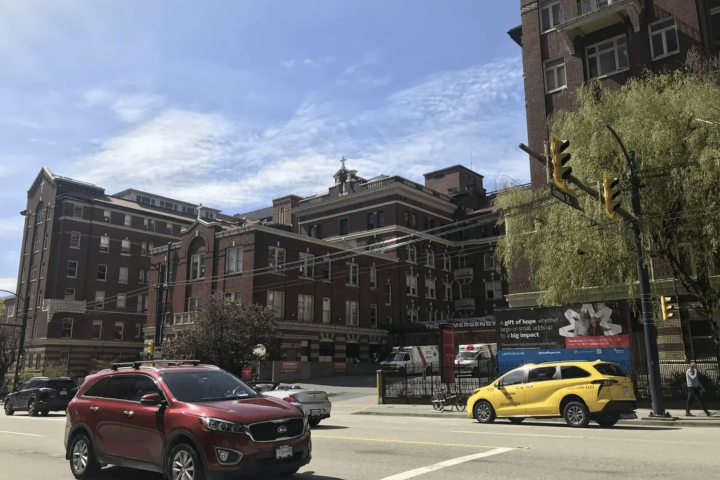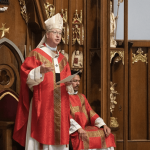TORONTO (CCN) — “Rising anti-Semitism, Islamophobia, homophobia and transphobia have left too many people feeling unsafe in their own communities.”
So reads the opening sentence of the federal government press release introducing Minister of Justice and Attorney General Sean Fraser’s Bill C-9, the Combatting Hate Act.
Phil Horgan, the president and general counsel of the Catholic Civil Rights League, certainly noticed some oversights in that sentence.
“There was no mention of over 300 arsons or acts of vandalism to Christian churches since 2021, of which the majority were Catholic churches,” Horgan wrote in a statement to The Catholic Register. This suggests to him that “the extensive losses to Christian church properties over the past four years appears to be of little interest to the federal government.”
Bill C-9 proposes the following amendments to the Criminal Code:
- Making it a crime to knowingly intimidate or obstruct people from entering a place of worship, community centre, school or any other space used by a recognizable group;
- Adding a specific hate-motivated crime offence, thus “ensuring such conduct is more clearly denounced and that offenders are held accountable”;
- Establishing a criminal offence for intentionally brandishing “certain terrorism or hate symbols in public”;
- Quickening the prosecution process for hate-related crimes by removing the need for Attorney General-consent in laying hate propaganda charges.
These proposed actions to “address hate” in the government’s words struck Horgan as “at odds” with how Liberal — and NDP — MPs have responded to vandalism and arson carried out on Catholic and Christian houses of worship. He noted three calls to denounce the church burnings between October 2023 and October 2024 were defeated.
Horgan also suggests Bill C-9 is not necessary as current laws are ample to deal with hate.
“Rather than introduce new legislation to denounce hate speech, a more immediate solution would be to enforce existing laws and provide greater resources to allow investigations that would lead to charges for actual offences that have already occurred,” Horgan wrote.
There are existing statutes that could effectively clamp down on hate-related incidents if enforced. Section 423 of the Criminal Code says it is an act of intentional intimidation to “block or obstruct a highway.” Section 430 declares if a person “obstructs, interrupts or interferes with the lawful use, enjoyment or operation of property” or “inhibits any person from utilizing a facility” they commit mischief. And Section 65 of the Criminal Code bars individuals from concealing their identity — for example, wearing a mask — while engaged in a criminal action.
Other faith groups, though, have applauded the proposed legislation. Noah Shack, CEO of the Centre for Israel and Jewish Affairs (CIJA), embraced the tabling of Bill C-9 after 70 per cent of police-reported hate crimes — 900 incidents — targeting religion in 2023, according to a March 2025 Statistics Canada report, was directed against the Jewish population.
“This legislation, tabled in the first week of Parliament, is an important signal of government action to confront serious threats facing Canada’s Jewish community,” declared Shack. “No Canadian should be targeted when dropping their kids off at school, visiting an elderly parent or attending religious service.”
Other groups have concerns, however. The Canadian Civil Liberties Association (CCLA) warned that the right to peaceful protest could be more easily curtailed if Bill C-9 becomes operational.
“As drafted, Bill C-9 risks criminalizing some forms of protected speech and peaceful protest — two cornerstones of a free and democratic society — around tens of thousands of community gathering spaces in Canada,” said Anaïs Bussières McNicoll, director of the CCLA’s Fundamental Freedoms program, adding that the “the new intimidation offence is far broader than existing prohibitions and could criminalize peaceful protests simply because they are seen as disruptive. The penalty of up to 10 years in prison is very severe and could push activists into silence.”


